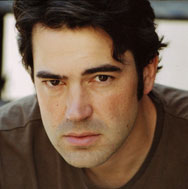 Sidetracked
Sidetracked, written by Richard Cottan, was the first of three feature-length episodes featuring provincial Swedish detective Kurt Wallander, based on the award-winning novels of Henning Mankell. Kenneth Branagh stars as the world-weary inspector, whose investigation into a series of brutal killings takes him deep into a web of corruption.
After Wallander fails to prevent the suicide of a young woman – something that haunts him for the rest of the story – he is called upon to investigate the axe murder and partial scalping of a former minister of justice. Before long, a prominent art dealer, a small-time thug and a financial wheeler-dealer are murdered in the same way.
With the help of an alcoholic ex-journalist, whose career was sabotaged when he came too close to exposing wrongdoing in government circles, Wallander puts the pieces together to reveal a terrible picture of darkness and complicity at the highest levels of Swedish society.
Meanwhile, he also has to deal with his strained family relationships. Living alone during a trial separation from his wife, he is also growing distant from his spirited daughter Linda (played by Jeany Spark) and has a fractured relationship with his father (David Warner), a confrontational artist.
I haven't read any of Mankell's books, so I can't comment on how faithful an adaptation this is. The plot is fairly straightforward, lacking the convulsive twists and turns of CSI/Bruckheimer-style US series. However, this is a perfect match for the rural and slightly dreamy atmosphere of the film. From a screenwriting point of view, I'd say this is the narrative equivalent of “slow food”.
The storyline balances the slow build of the police procedural and Wallander's personal issues perfectly; rather than contriving to twist the story every couple of minutes, each scene – both investigative and personal – builds up another layer on the central theme of parent/child relationships without drawing on-the-nose links. Each of the strands throws light on the other and reveals more about the detective's character and psychological state. As I said in my first post, the writing is almost “fractal”, in that each fragment reflects the whole.
I'm not normally a fan of Kenneth Branagh, but he is perfect as the careworn yet dedicated detective. As his enquiries lead him further into the heart of the darkness, you can sense the increased burden weighing down on his shoulders. Wallander has a very human sense of justice; despite the apparent lack of a crime, he's just as interested in what drove the 15-year-old girl to suicide as he is in the axe murders.
The story deals in moral shades of grey, asking to what degree the police should protect society's institutions even if they're rotten. By the time the killer has been identified and the police set their trap, there seems to be a gap between the law and what's “right”. As Wallander grapples with his sense of duty, we find ourselves sympathising almost totally with the murderer and thinking it wouldn't be a great loss if the final target – the bait in the trap – gets bumped off.
This is classy stuff, beautifully shot – in HD – at a number of captivating Swedish locations. Wallander is an understated but precisely drawn character, and this brief mini-series looks like it's going to be a welcome addition to the ranks of thoughtful detective drama.
(
Sidetracked will be available
via BBC iPlayer until 20 December, and will be repeated on BBC HD at 22.45 on 3 December)
In other news -
here's my latest
I'm a Celebrity... blog, from last night.
 First off - a happy and peaceful Christmas (or whatever you choose to celebrate) to all of you.
First off - a happy and peaceful Christmas (or whatever you choose to celebrate) to all of you.









